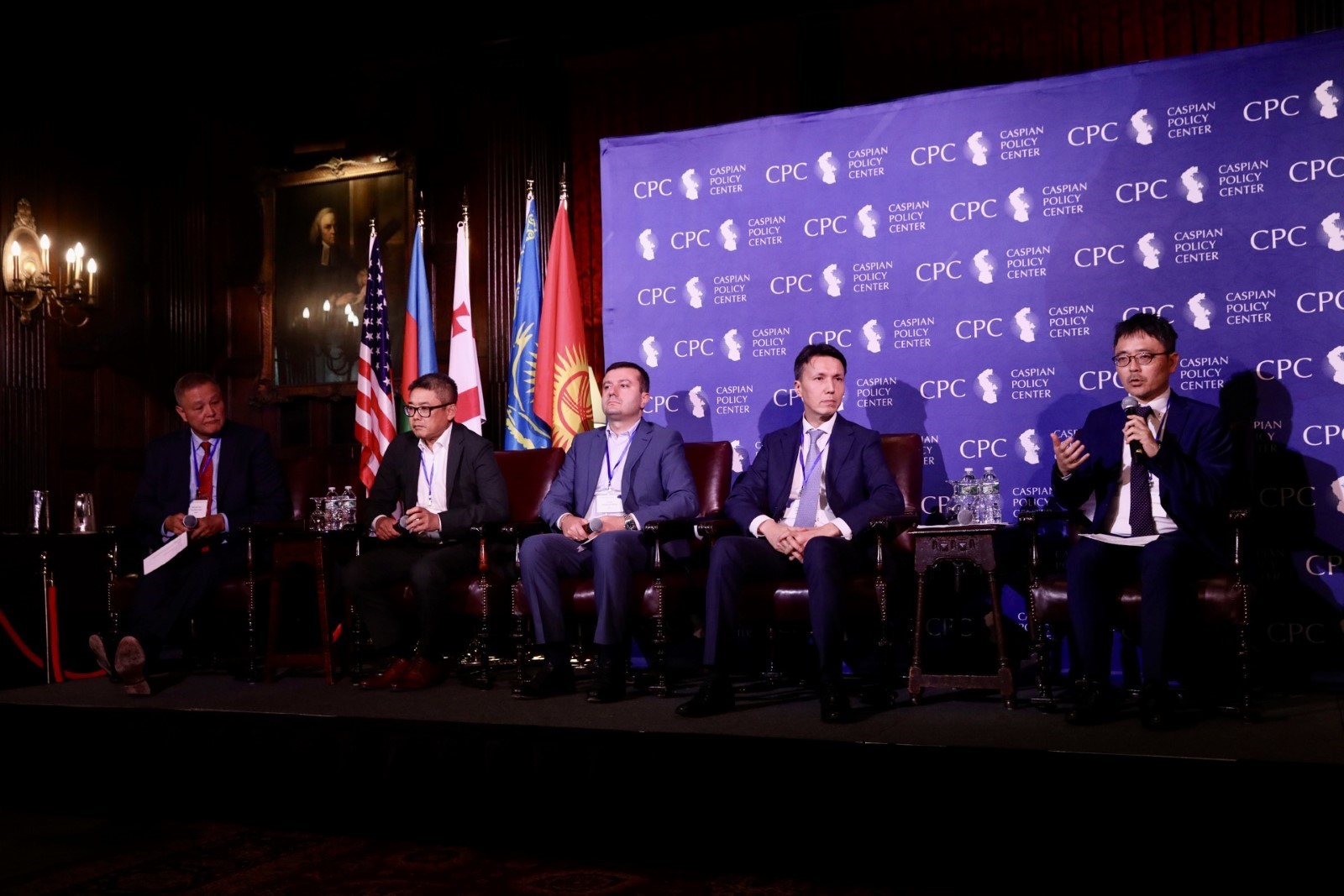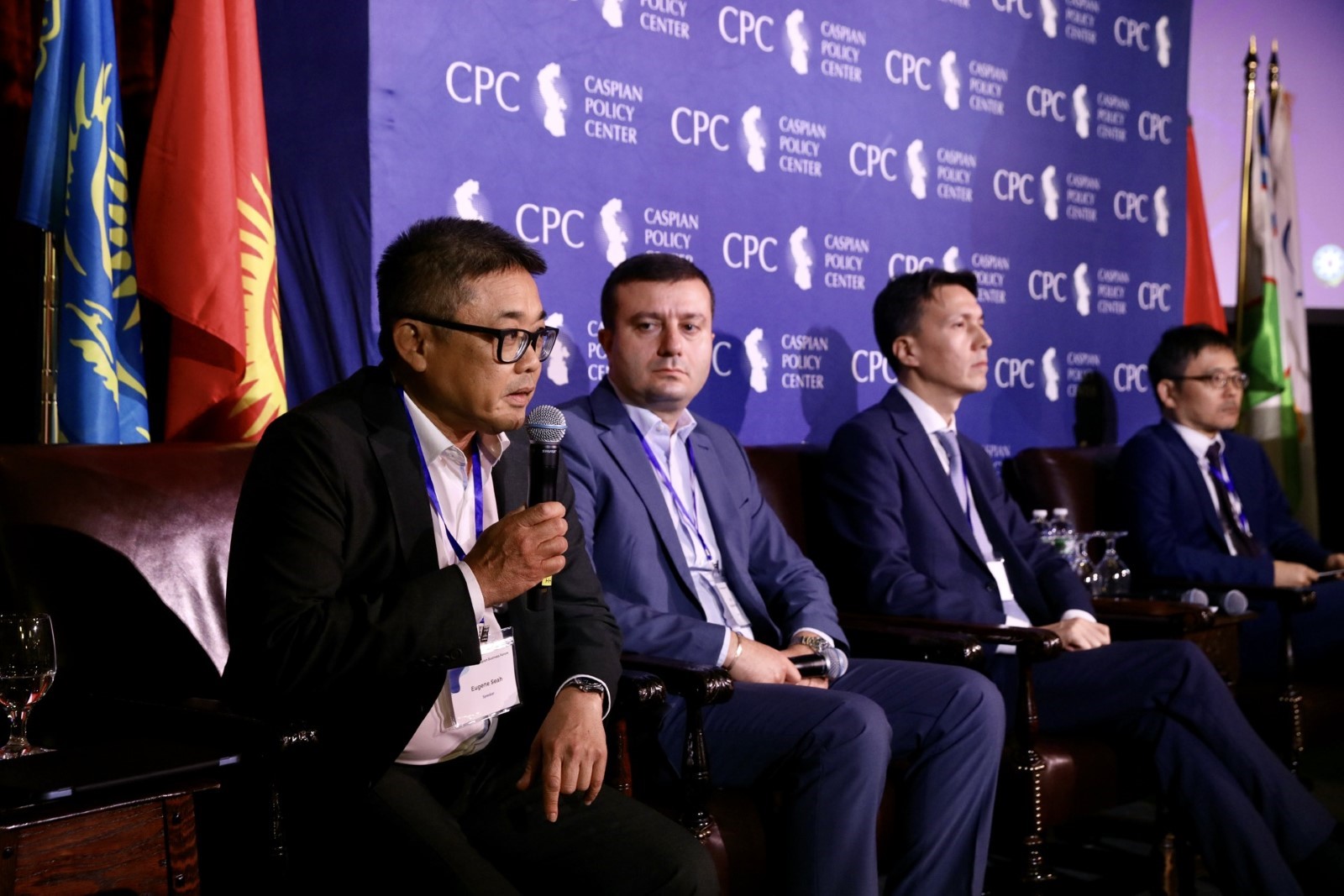Caspian Policy Center Hosts 4th Annual Caspian Business Forum Following President Biden’s Meeting with the C5+1 Leaders in New York
Recent Articles
Author: Caspian Policy Center
09/20/2023
SEPTEMBER 19, NEW YORK, NEW YORK – Today, the Caspian Policy Center hosted its 4th Annual Caspian Business Forum in New York following President Biden’s historic meeting with the Presidents of Kazakhstan, the Kyrgyz Republic, Tajikistan, Turkmenistan, and Uzbekistan for the inaugural C5+1 presidential summit on the margins of the United Nations General Assembly.
The Caspian Business Forum provided a platform for prominent voices in business, government, and non-profits to discuss the emerging business challenges and opportunities for the Caspian Region. This event was hosted in coordination with the embassies of, Azerbaijan, Georgia, Kazakhstan, Kyrgyzstan, Turkiye, Turkmenistan, and Uzbekistan.
The Caspian Business Forum consisted of one ministerial panel and two expert panels, exploring the most significant opportunities to expand cooperation between the United States and the Caspian Region.
Starting off the event, Efgan Nifti, CEO of the Caspian Policy Center, gave opening remarks highlighting the significance of cooperation and mutual support between the Caspian region countries and their global partners cannot be overstated.
“Fostering collaboration and solidarity among the Caspian region countries and their international allies becomes increasingly crucial to address these complex issues and promote stability in the region,” Efgan Nifti stated.
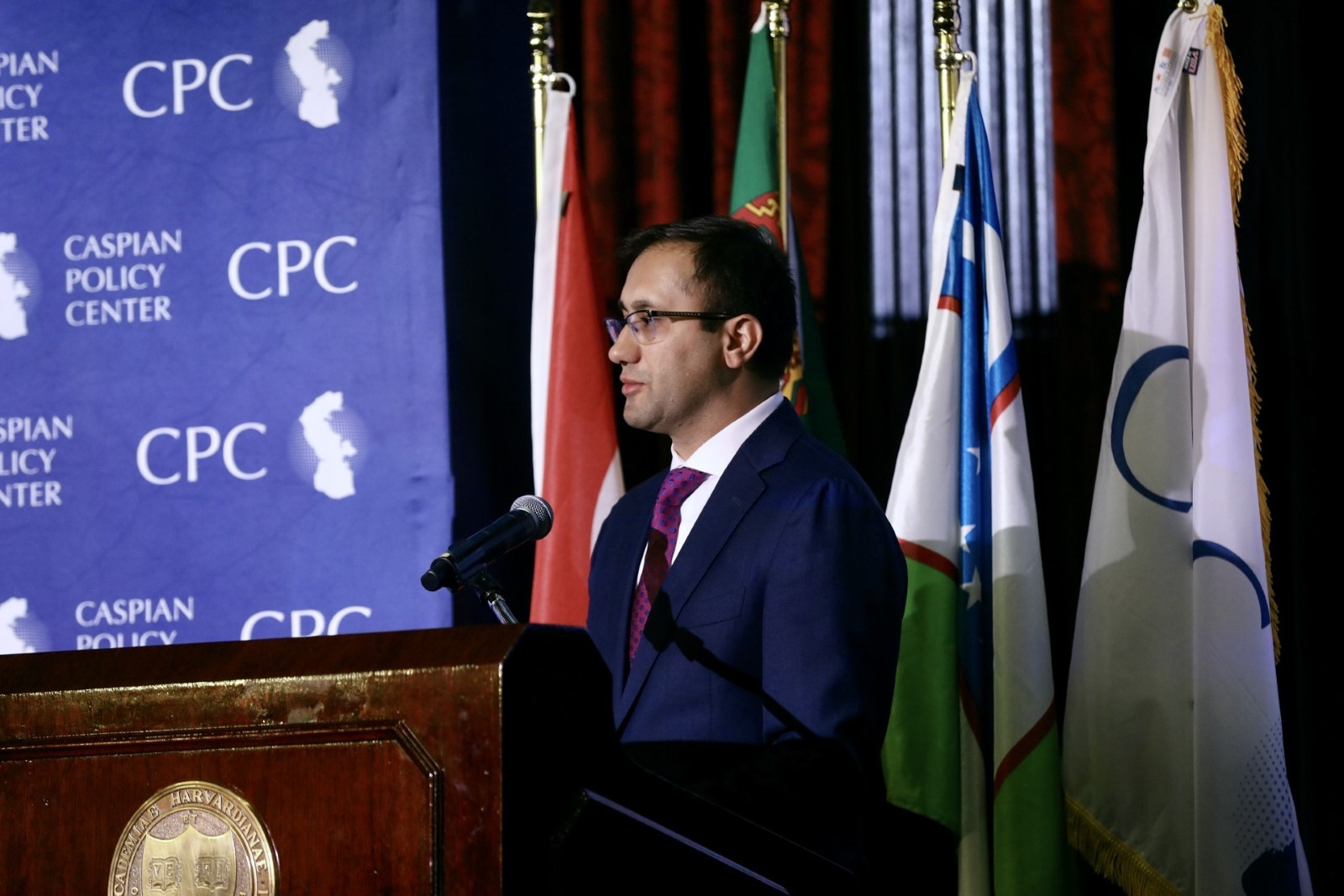 Efgan Nifti, the CEO of the Caspian Policy Center
Efgan Nifti, the CEO of the Caspian Policy Center
Ambassador Geoffrey Pyatt, Assistant Secretary of Bureau of Energy Resources at the U.S. Department of State, delivered the first keynote remarks ahead of the ministerial addresses.
Commenting on recent energy security challenges, Ambassador Pyatt stated: “Caspian natural gas has been playing an important role in reducing Europe’s energy dependence and will continue to play that role as we look into the future.”
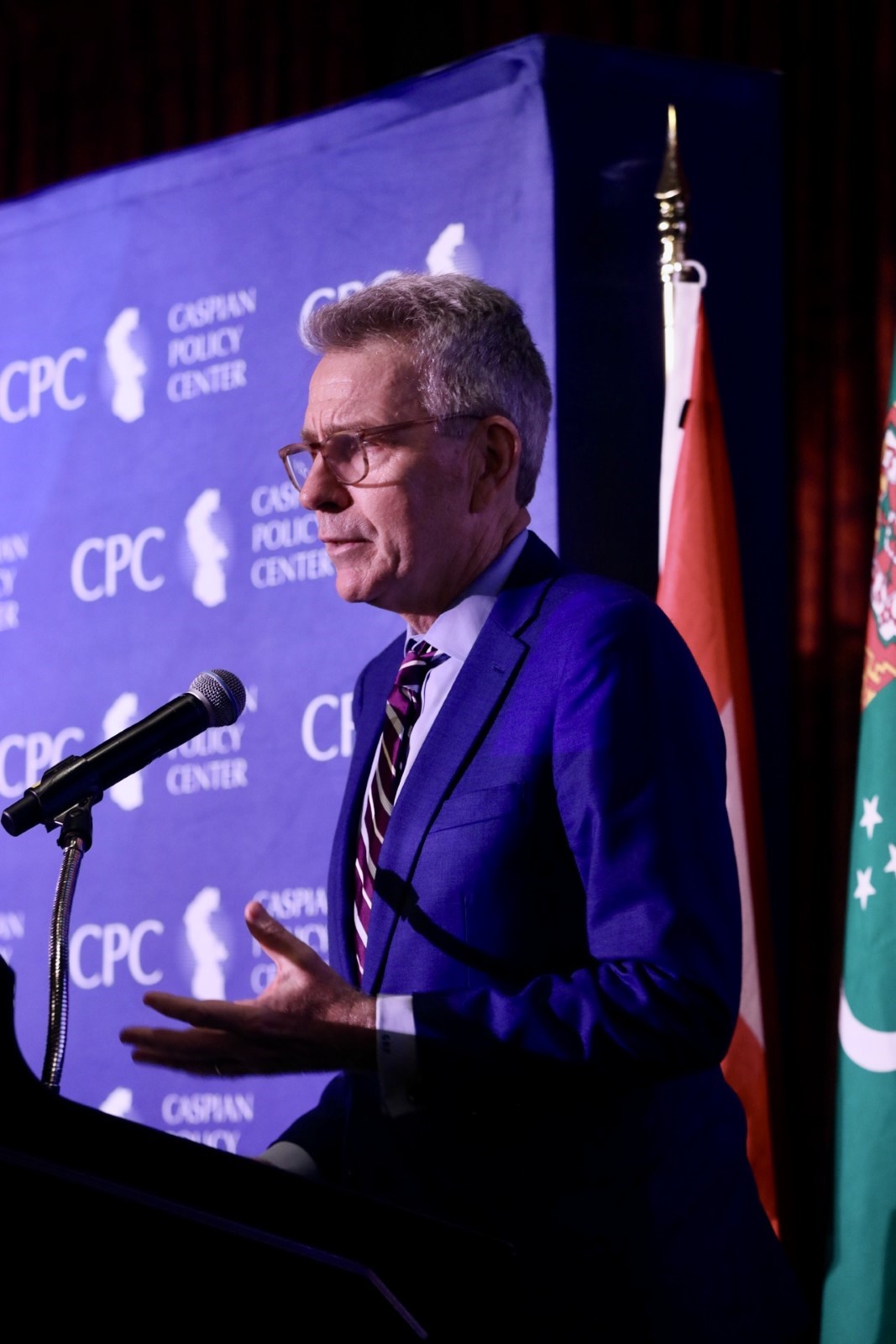 Ambassador Geoffrey Pyatt, the Assistant Secretary of the Bureau of Energy Resources at the U.S. Department of State
Ambassador Geoffrey Pyatt, the Assistant Secretary of the Bureau of Energy Resources at the U.S. Department of State
Regarding the C5+1, Ambassador Pyatt stated, “In Support of the C5+1, my team in the State Department launched the Central Asian Energy Fellows Program, which will provide technical training, internships, and professional development for emerging energy specialists in Central Asia.”
“Through this elevation of the C5+1 format, we seem to demonstrate to our Central Asian friends that we are uniquely reliable partners. Not quite imposing our own interest in some of our approaches,” Ambassador Pyatt continued.
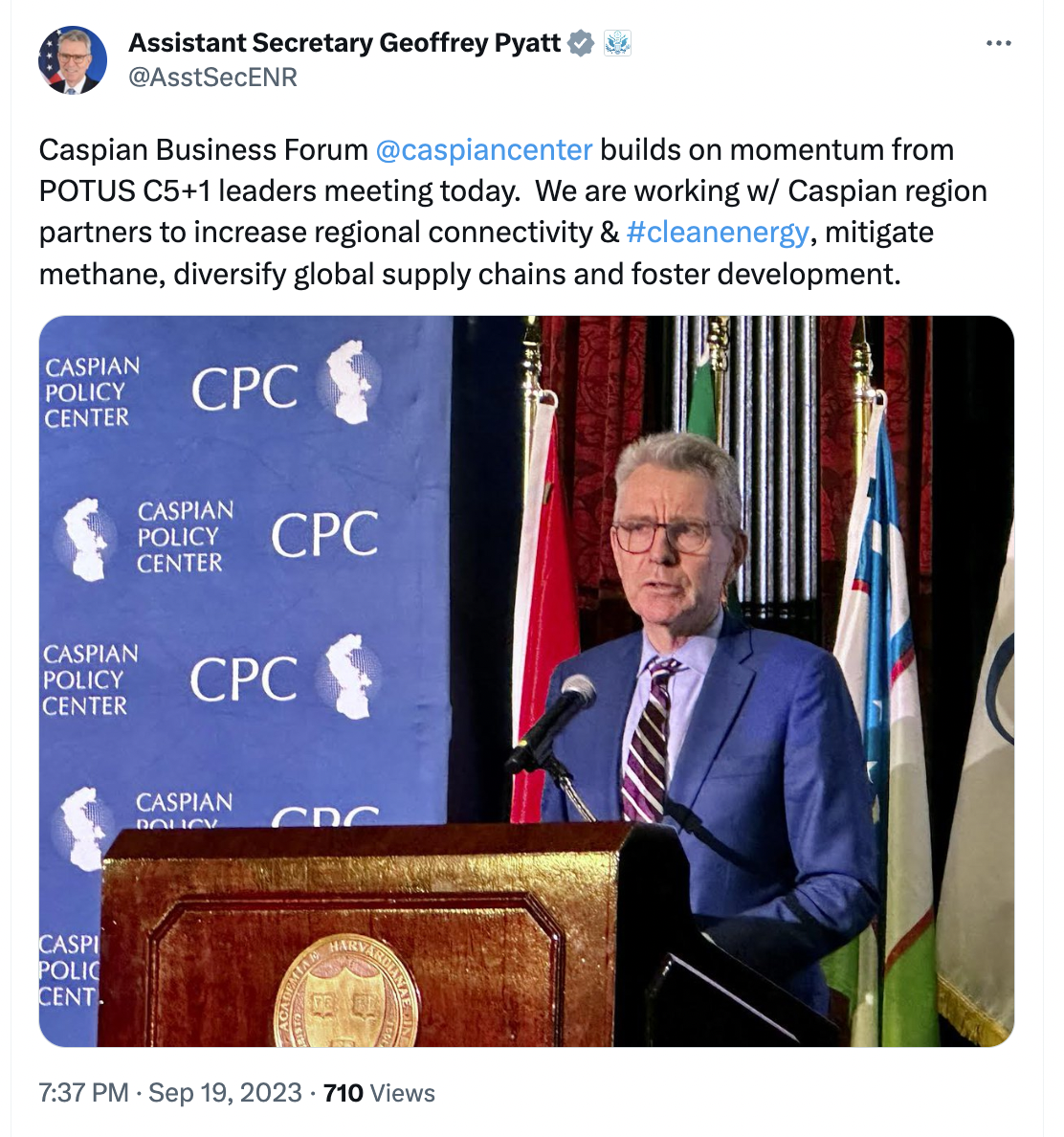
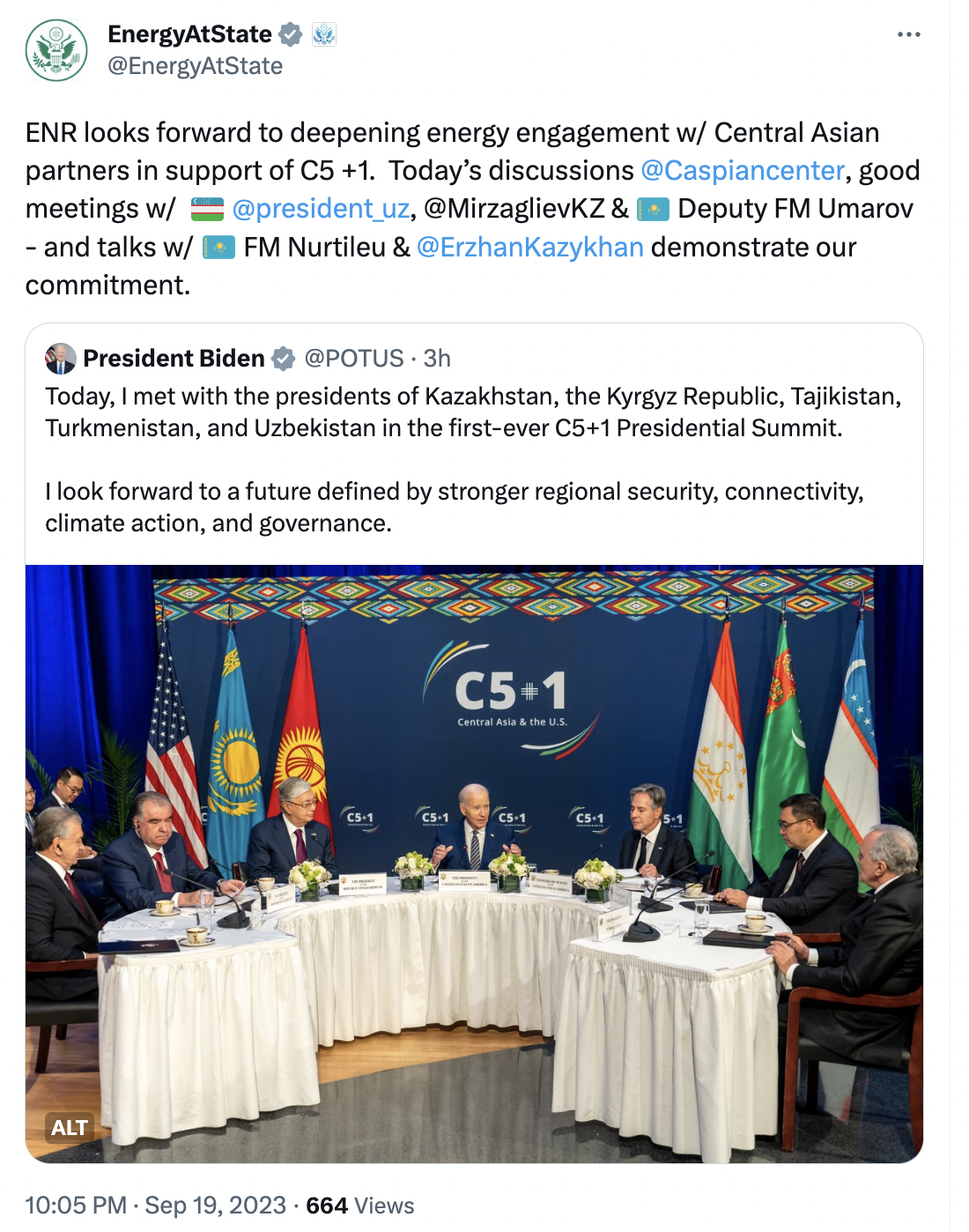 Ambassador Kubanychbek Omuraliev, the Secretary General of Organization of Turkic States, highlighted that “Today’s C5+1 meeting is a logical continuation of Central Asia plus United States’ cooperation format.”
Ambassador Kubanychbek Omuraliev, the Secretary General of Organization of Turkic States, highlighted that “Today’s C5+1 meeting is a logical continuation of Central Asia plus United States’ cooperation format.”
Burak Akçapar, the Deputy Minister of Foreign Affairs of Türkiye, emphasized recent geopolitical changes, stating: “the strategic rift has deepened between Europe and Russia, and the US and Russia, and seems like it’s going to stay with us for some time.”
Deputy Minister Burak Akçapar detailed the importance of the Turkish-Caspian Region engagement: “Türkiye is inseparable from Central Asia and the Caspian Basin. We share cultural, linguistic, and kinship ties with the countries in the region. Our agenda of cooperation is flourishing.”
“In addition to bilateral relations, we have engaged with the Central Asian countries through multilateral platforms, including of course, the organization of Turkic States,” he continued.
Elnur Mammadov, the Deputy Minister of Foreign Affairs of the Republic of Azerbaijan, continued the Ministerial panel. He highlighted the growing importance of the Middle Corridor and Azerbaijan’s transit potential: “New cooperation formats in close cooperation with Central Asian states and Türkiye were established to ensure sustainable connectivity and to develop the Trans-Caspian East and West corridor as a viable and safe alternative for the traditional routes.”
“Azerbaijan is committed to continuing to move along the path of development and continues to build a more secure and prosperous future of the region.”
Regarding recent infrastructure developments in Karabakh, Deputy Minister Elnur Mammadov stated, “By now, Azerbaijan has spent something around 7 billion USD in investments in areas that were obliterated during the years of occupation.”
Lasha Darsalia, the First Deputy Minister of Foreign Affairs for Georgia, emphasized the historic engagement between Georgia and the United States, stating: “For more than three decades, Georgia and the US has enjoyed an increasingly multidimensional partnership.”
“Georgia remains close and reliable ally of the US and maintains its readiness to further combine efforts with our friends across the Caspian region.”
“The strategic agreement signed between leaders of Georgia, Hungary, Romania, and Azerbaijan has created for a solid basis for energy partnership,” First Deputy Minister Lasha Darsalia continued.
Ardak Zebeshev, the Chairman of the Investment Committee at the Ministry of Foreign Affairs, Kazakhstan, commented on the strong relationship between Kazakhstan and the United States: “Over the 3 decades, the U.S. firmly stays as one of Kazakhstan’s top 3 economic and investment partner.”
Speaking on the topic of the Middle Corridor and transit potential, Ardak Zebeshev added, “Our goal is to develop infrastructure projects with prospects for further increase of transit volumes through Middle Corridor, together with our friends Turkey, Azerbaijan, and Georgia.”
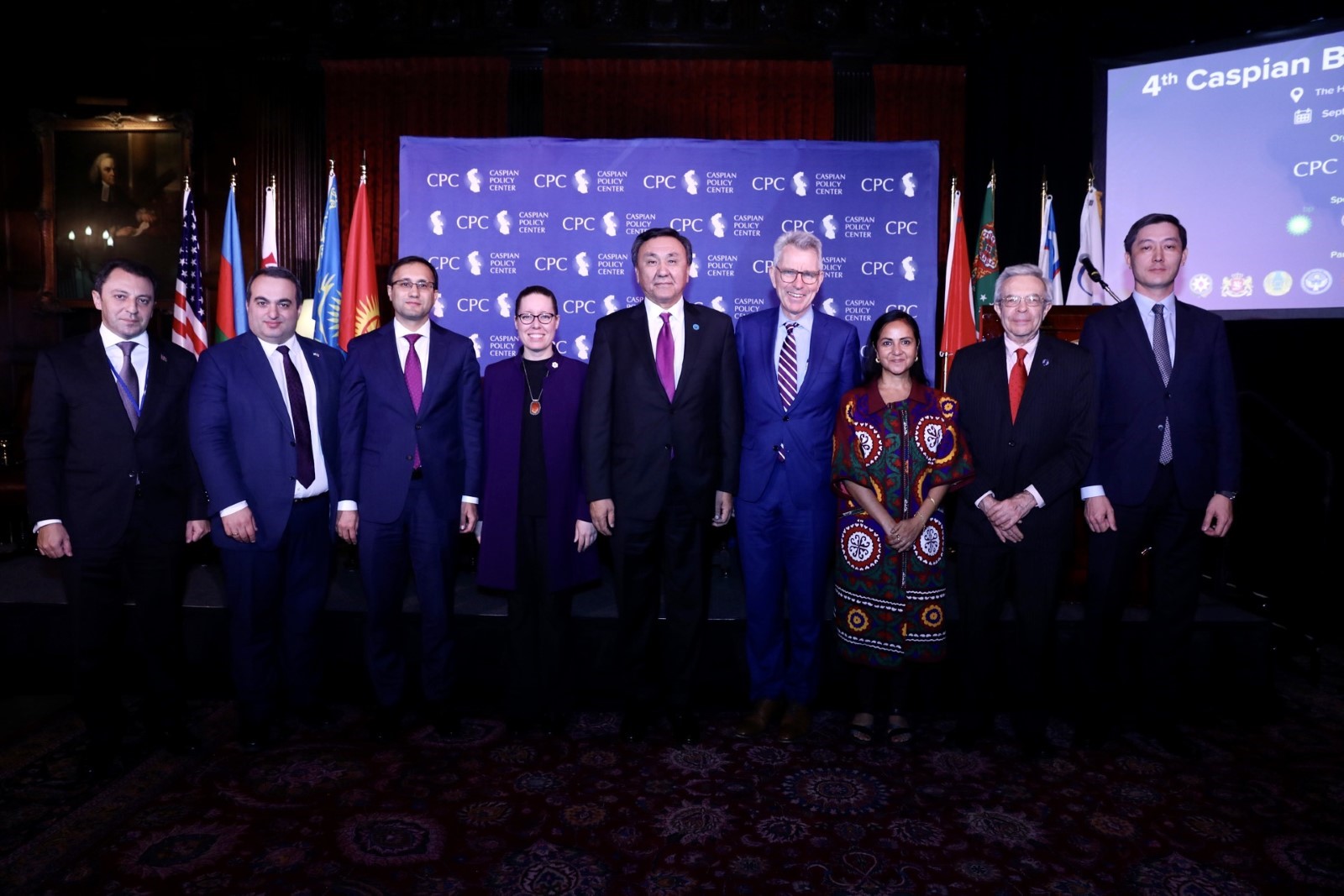 Anjali Kaur, the Deputy Assistant Administrator of the Bureau for Asia at the United States Agency for International Development (USAID), delivered the keynote address for the 2nd panel discussion.
Anjali Kaur, the Deputy Assistant Administrator of the Bureau for Asia at the United States Agency for International Development (USAID), delivered the keynote address for the 2nd panel discussion.
Deputy Assistant Administrator Anjali Kaur emphasized the emerging economic potential in the Caspian region as connectivity grows, “As Central Asia continues building additional linkages with the South Caucasus and the US, we all have more opportunities for engagement and partnership in the region.”
“A new Central Asia is emerging, and it will be more independent, economically resilient, and interconnected than ever before,” she continued.
“We at USAID, are asking hard questions about how to unlock the region’s economic growth potential, including the proverbial Trans-Caspian corridor.”
As global uncertainty is pushing geopolitics to an inflection point, Anjali Kaur added that USAID plans to use “this time to address key issues related to expanding the region’s export markets, promoting energy sovereignty, combating climate change, cultivating entrepreneurship and preparing Central Asia’s youth for the 21st century workplace.”
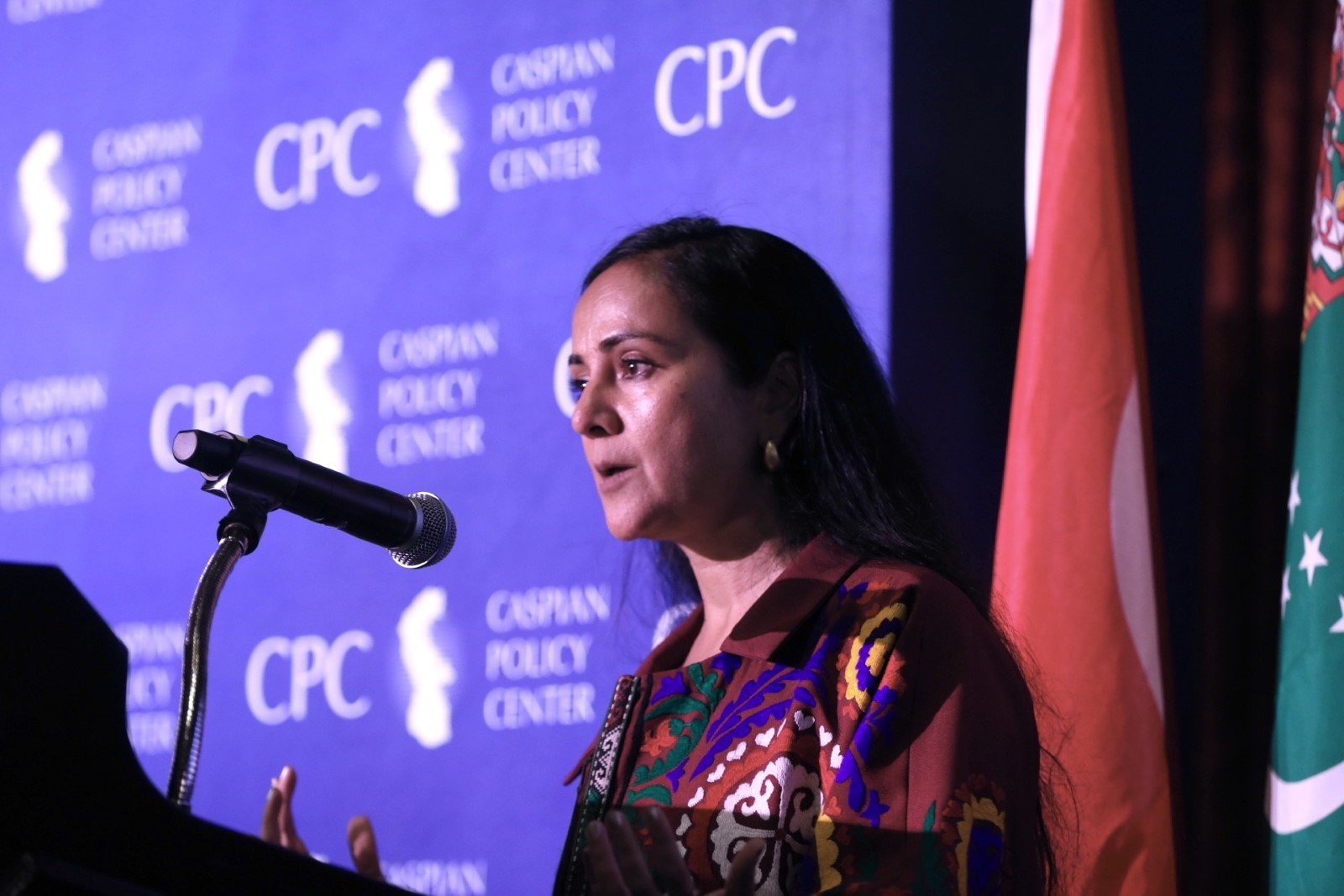 Anjali Kaur, the Deputy Assistant Administrator of the Bureau for Asia at the United States Agency for International Development (USAID)
Anjali Kaur, the Deputy Assistant Administrator of the Bureau for Asia at the United States Agency for International Development (USAID)
Considering recent geopolitical and economic instability, the 2nd panel of the Caspian Business Forum aimed to explore the current and future of business ties between the United States and Caspian region. Moderated by Admiral (ret.) Ron MacLaren of the Caspian Policy Center, this panel focused on potential investments in the Caspian region, areas of business opportunities for U.S. entities, and prior business engagement successes.
Tomoyuki Hirata, the Chief Representative for the Washington D.C. Office at the Japanese Bank for International Cooperation (JBIC), detailed the potential economic opportunities of the Middle Corridor, stating, “Now for Japanese companies, diversification of supply chains is really important, and so long as Middle Corridor can achieve reducing costs by reducing land time for transportation, that can be a more tangible option for diversification for Japanese companies.”
Meirzhan Yussupov, the Chairman of Kazakh Invest, Kazakhstan, stated “Kazakhstan will continue to take every possible measure to attract investments in established favorable business environments.”
“Being the largest and one of the fastest growing economies in Central Asia, we’ll stick to our multi-vectoral policy, maintain relationships, and maintain the balance with countries such as the U.S.,” Meirzhan Yussupov continued.
Giorgi Khojevanishvili, the Deputy Director-General of Batumi Multimodal Terminal, Georgia, detailed the challenges and opportunities of regional transit infrastructure, stating, “We have to take into consideration the importance of infrastructural development in the region regarding the Middle Corridor.”
“Challenges we face in the region include infrastructural needs, and the modernization of our railway systems,” Mr. Khojevanishvili continued.
Eugene Seah, the Chief Operations Officer at the Baku International Sea Trade Port, Azerbaijan, explained “Following the start of the Ukraine war, there were key bottlenecks in Azerbaijan and Georgia regarding port capacity.”
To solve this, Eugene Seah added, “Currently, Azerbaijan, Georgia, and Kazakhstan are working on a joint operating company to facilitate the flow of the cargo.”
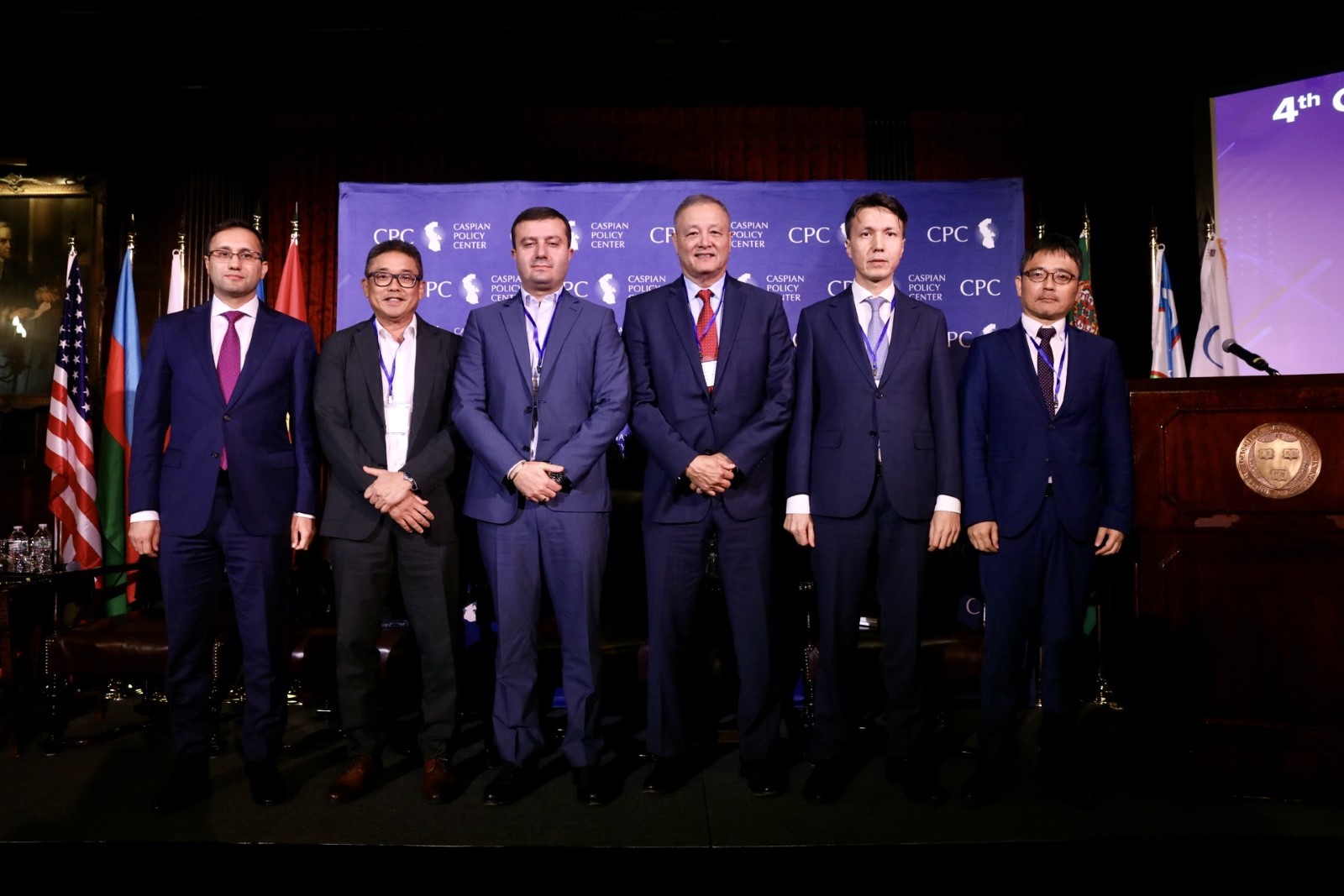 The Caspian Business Forum’s third panel, the “Energy and Climate” panel, explored how the Caspian Region, with vast reserves of traditional energy resources and immense potential in renewable energies, can help global energy markets mitigate ongoing uncertainties and supply rising global energy demands, while also working to achieve sustainable transitions. Moderated by Eugene Chausovsky, the Senior Director for Analytical Development and Training at New Lines Institute.
The Caspian Business Forum’s third panel, the “Energy and Climate” panel, explored how the Caspian Region, with vast reserves of traditional energy resources and immense potential in renewable energies, can help global energy markets mitigate ongoing uncertainties and supply rising global energy demands, while also working to achieve sustainable transitions. Moderated by Eugene Chausovsky, the Senior Director for Analytical Development and Training at New Lines Institute.
Kakajan Berdiyev, a Managing Partner at Maslahatçylar HJ, Turkmenistan, detailed the energy transition in the Caspian Region, stating, “The region will not lose its significance when it comes to energy security as global energy transition steps up.”
Discussing the untapped potential of Turkmenistan’s energy reserves, Kakajan Berdiyev added, “As we all know, the Trans-Caspian Pipeline was on the agenda for more than three decades. The recent developments with the ongoing war in Ukraine have once again shown everyone the significance of securing the energy markets and exports to Europe.”
“Just 18 months of time and around 1.5 billion USD would be enough to launch the first phase of the Trans Caspian Interconnector,” Kakajan Berdiyev continued.
“We hope that the region, including all the stakeholders, will take the opportunity to create a more stable, prosperous, and more connected regional and international systems.”
Robert Scher, the Head of International Affairs at bp America, described the Caspian Region’s role in the global energy transition, stating, “In the provision of energy from the Caspian and globally, we have to provide the energy that the world needs today, and we have to do it in a more sustainable but secure and affordable way.”
Specifically, to reach these sustainable goals, Robert Scher added, “At BP, we're looking at electrifying Sangachal Terminal so that we can then provide green electrons for the production of this gas that Europe is desperate for.”
Jubo Turashvili, the Head of Energy Policy and Investment Projects Department for the Ministry of Economy and Sustainable Development, Georgia, highlighted Georgia’s importance in energy transit, stating, “Georgia naturally has a strategical location, and it represents a bridge between East and West.”
He highlighted the importance of the Black Sea Submarine Cable, which is currently in the pre-construction phase, stating, “The Black Sea Submarine Cable is a bridge for the South Caucasus to the European Union.”
“Georgia’s national goal is to increase its energy capacity, especially as a net energy exporter country,” Jubo Turashvili continued.
Ambassador (ret.) Richard E. Hoagland, Board Member of the Caspian Policy Center, delivered the closing remarks for the 4th Caspian Business Forum, thanking all guests and participants for attending this important and timely opportunity for U.S.-Caspian Region engagement.
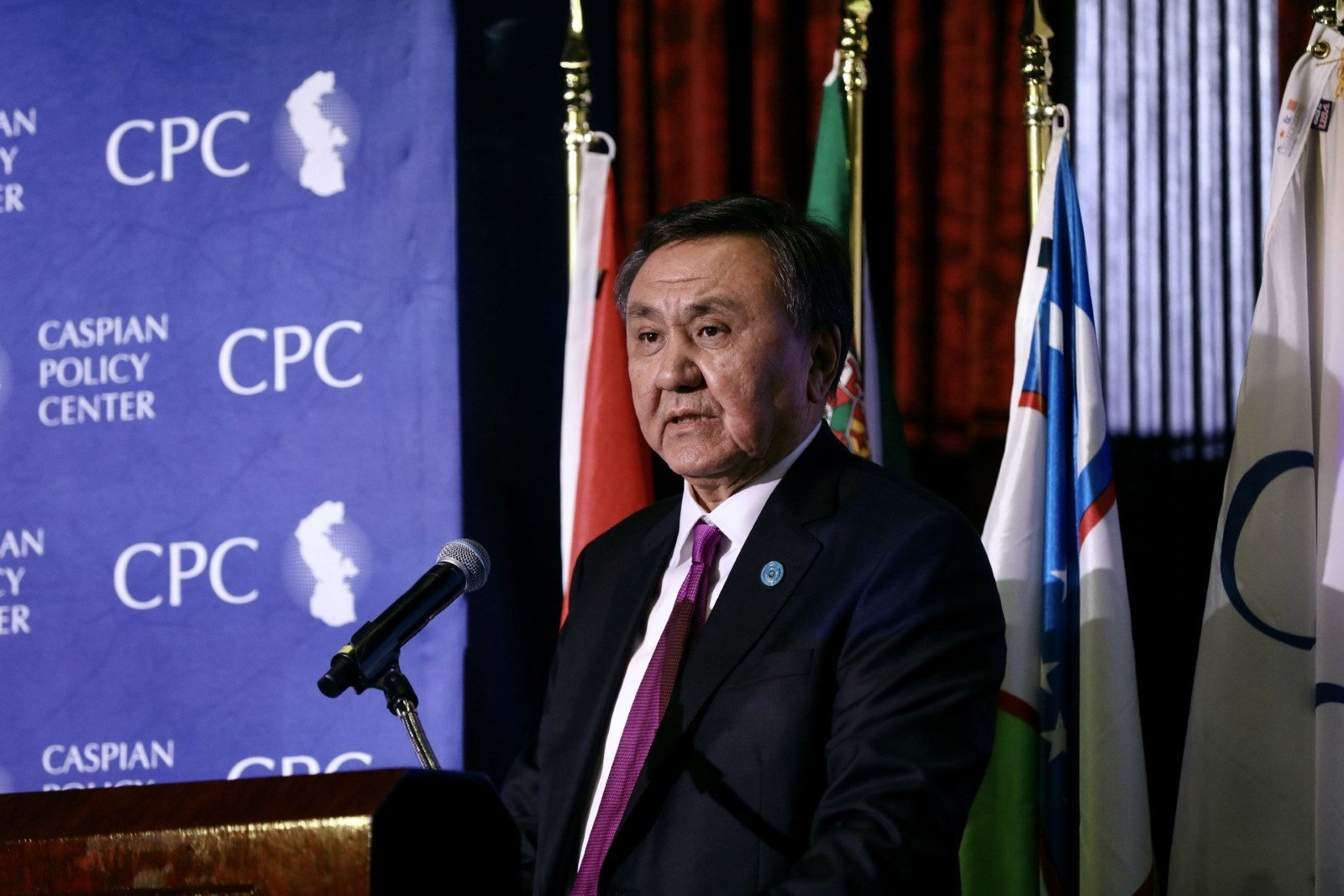 Ambassador Kubanychbek Omuraliev, the Secretary General of the Organization of Turkic States
Ambassador Kubanychbek Omuraliev, the Secretary General of the Organization of Turkic States
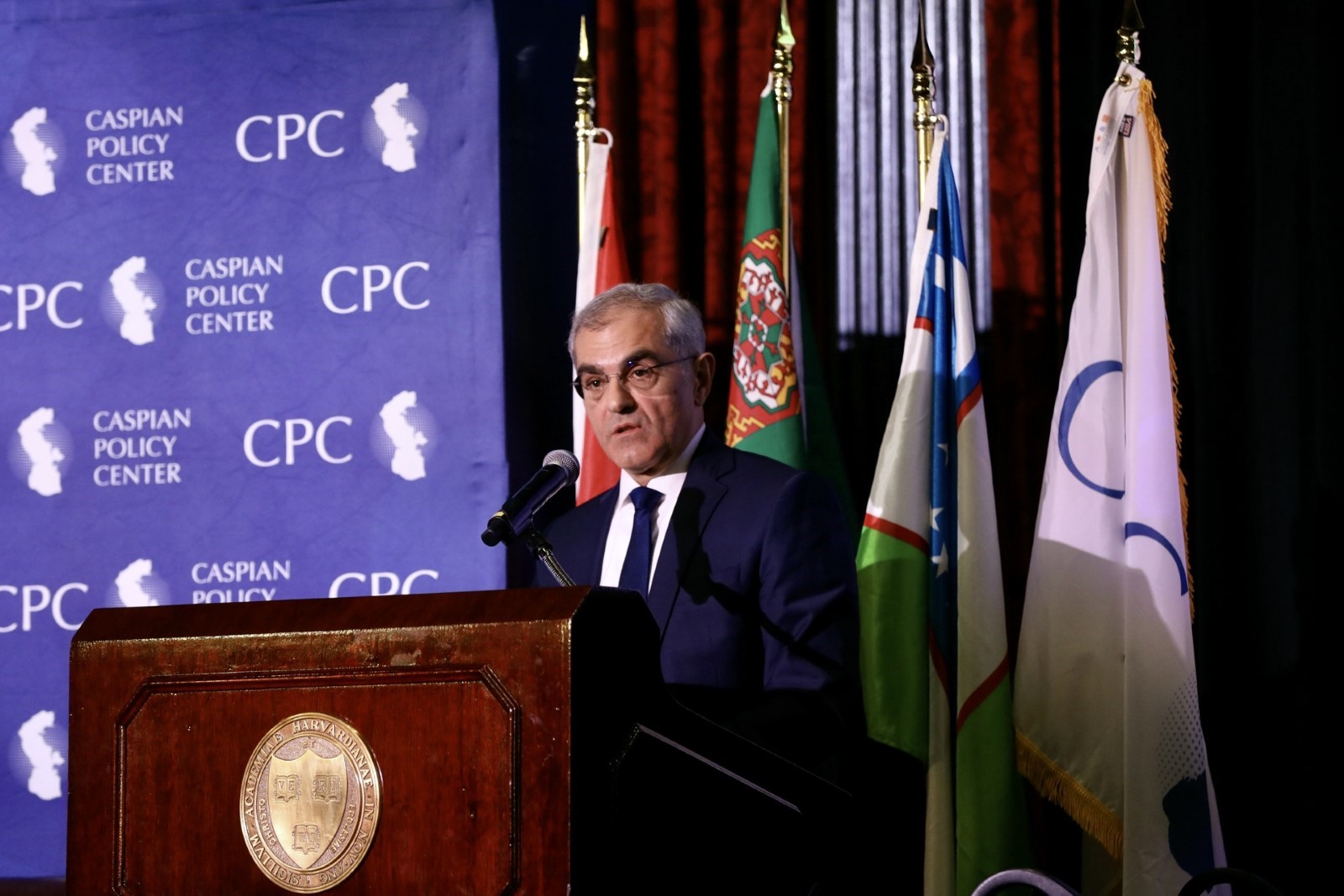 Burak Akçapar, the Deputy Minister of Foreign Affairs of Türkiye
Burak Akçapar, the Deputy Minister of Foreign Affairs of Türkiye
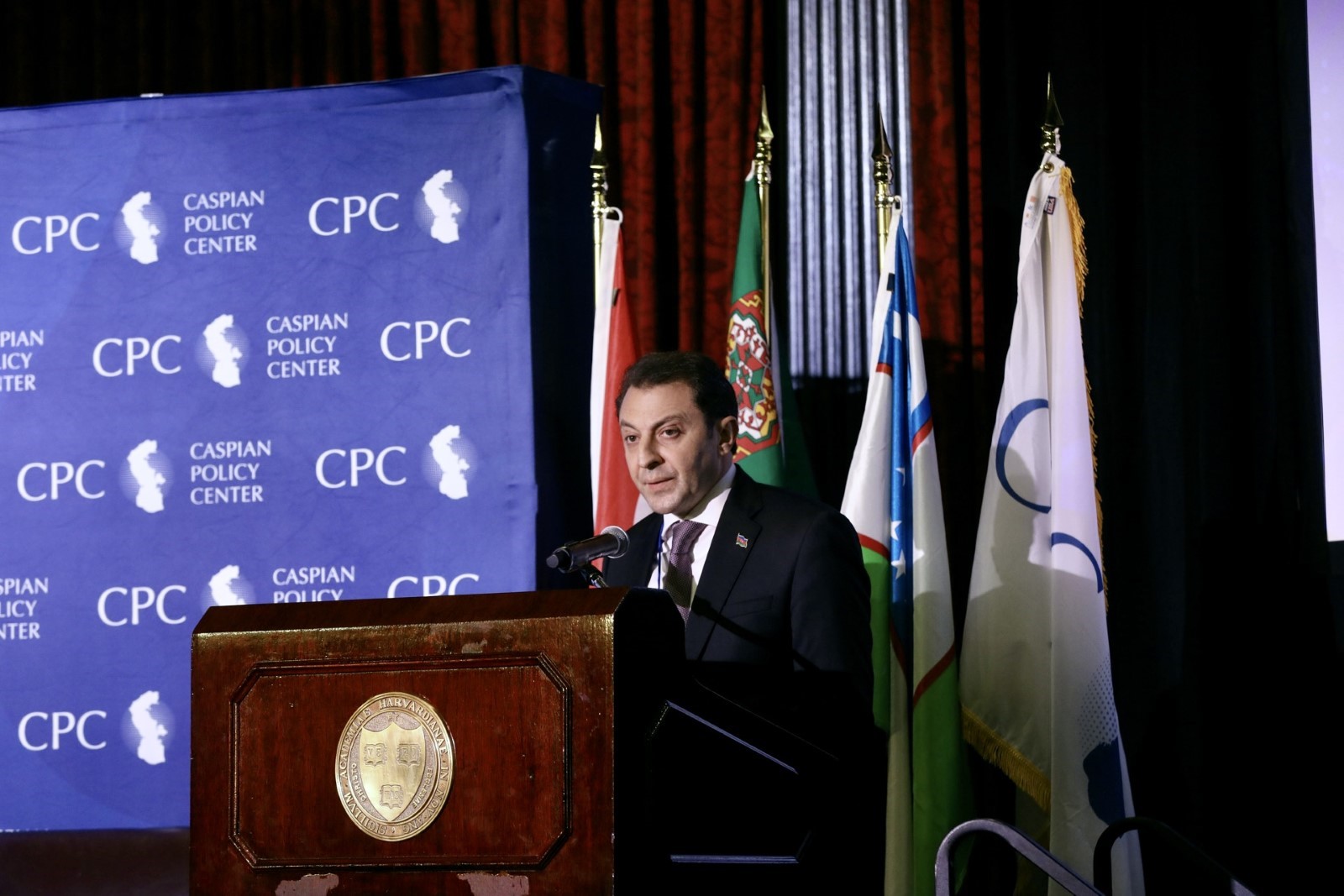 Elnur Mammadov, the Deputy Minister of Foreign Affairs of the Republic of Azerbaijan
Elnur Mammadov, the Deputy Minister of Foreign Affairs of the Republic of Azerbaijan
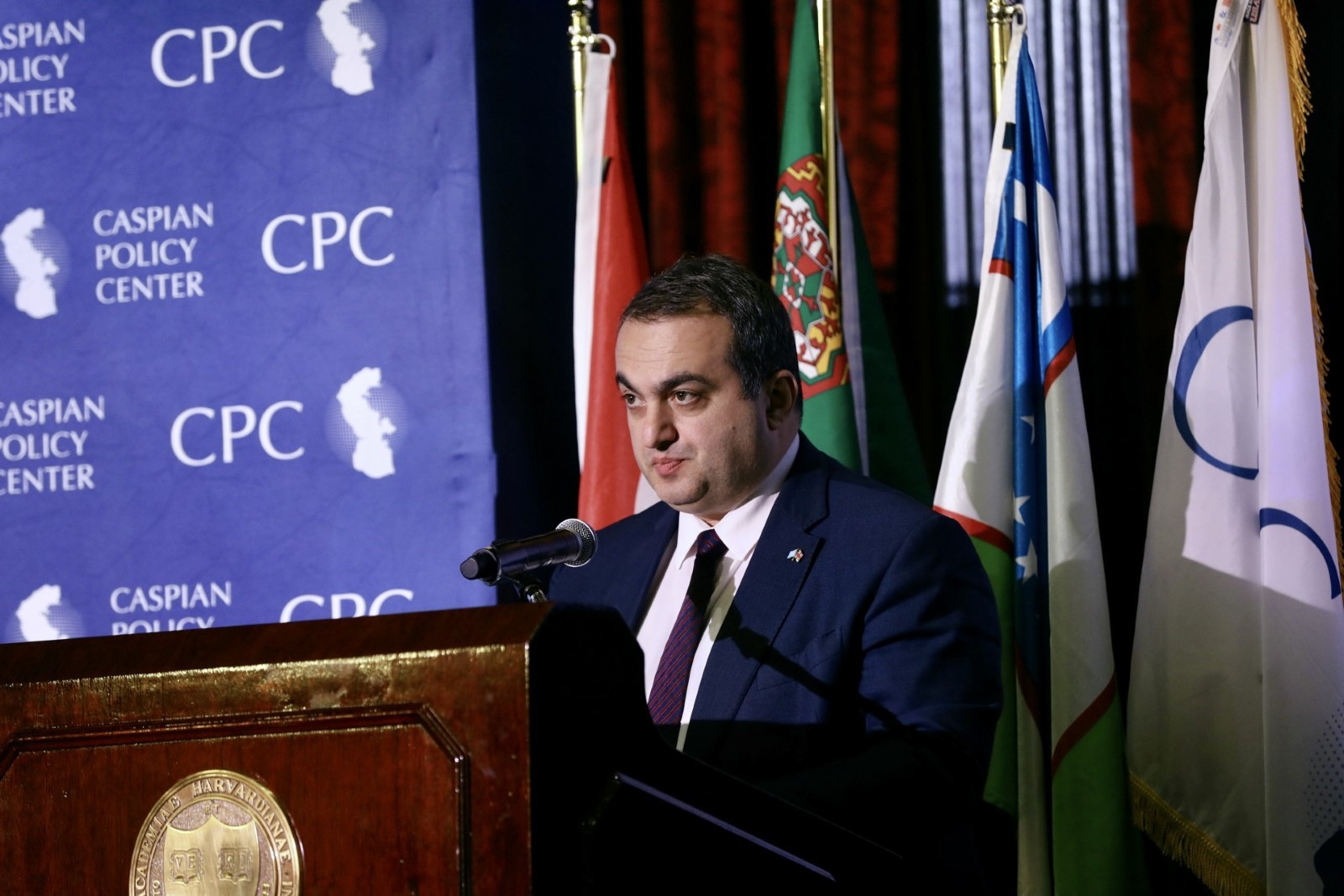 Lasha Darsalia, the First Deputy Minister of Foreign Affairs for Georgia
Lasha Darsalia, the First Deputy Minister of Foreign Affairs for Georgia
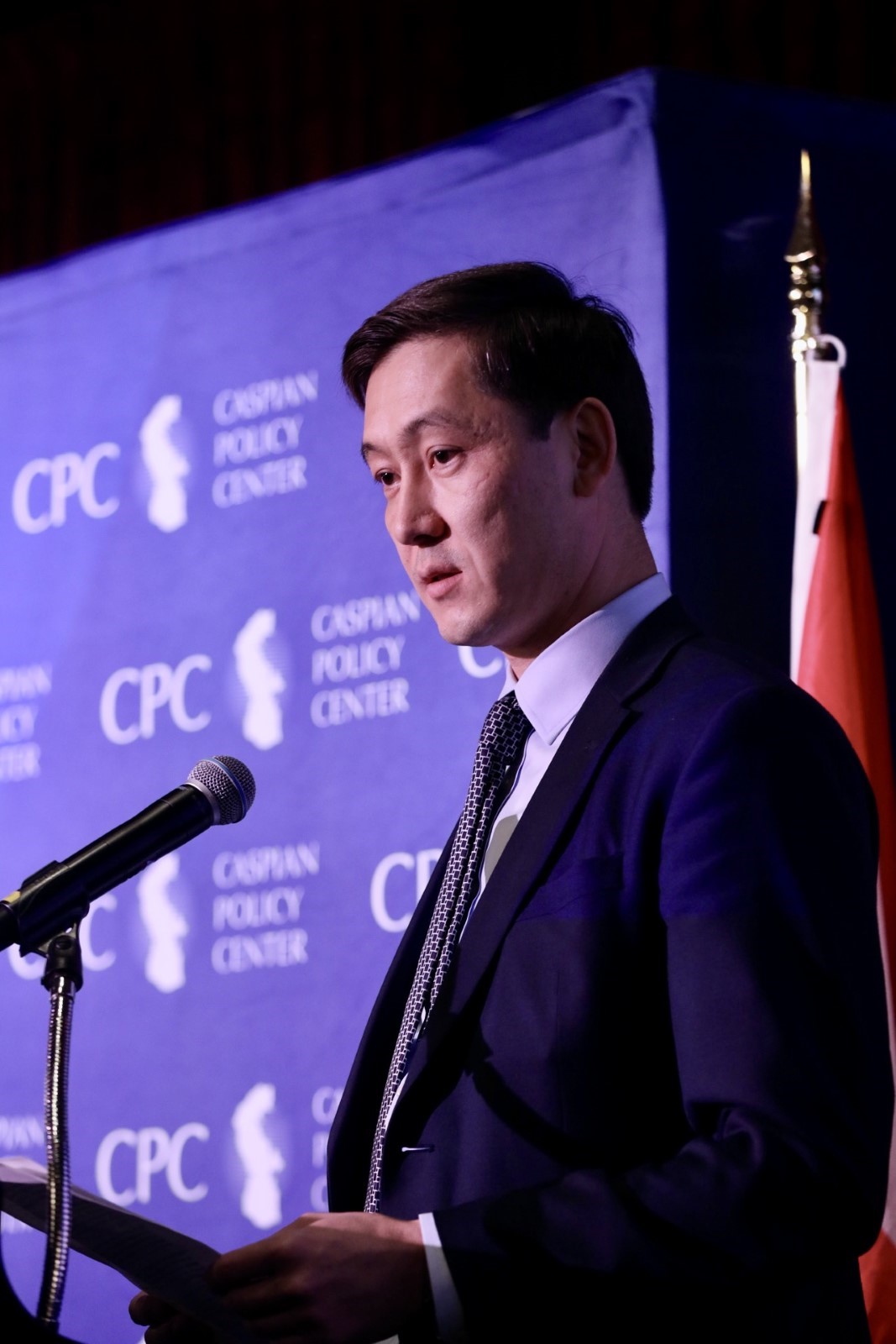 Ardak Zebeshev, the Chairman of the Investment Committee at the Ministry of Foreign Affairs of the Republic of Kazakhstan
Ardak Zebeshev, the Chairman of the Investment Committee at the Ministry of Foreign Affairs of the Republic of Kazakhstan
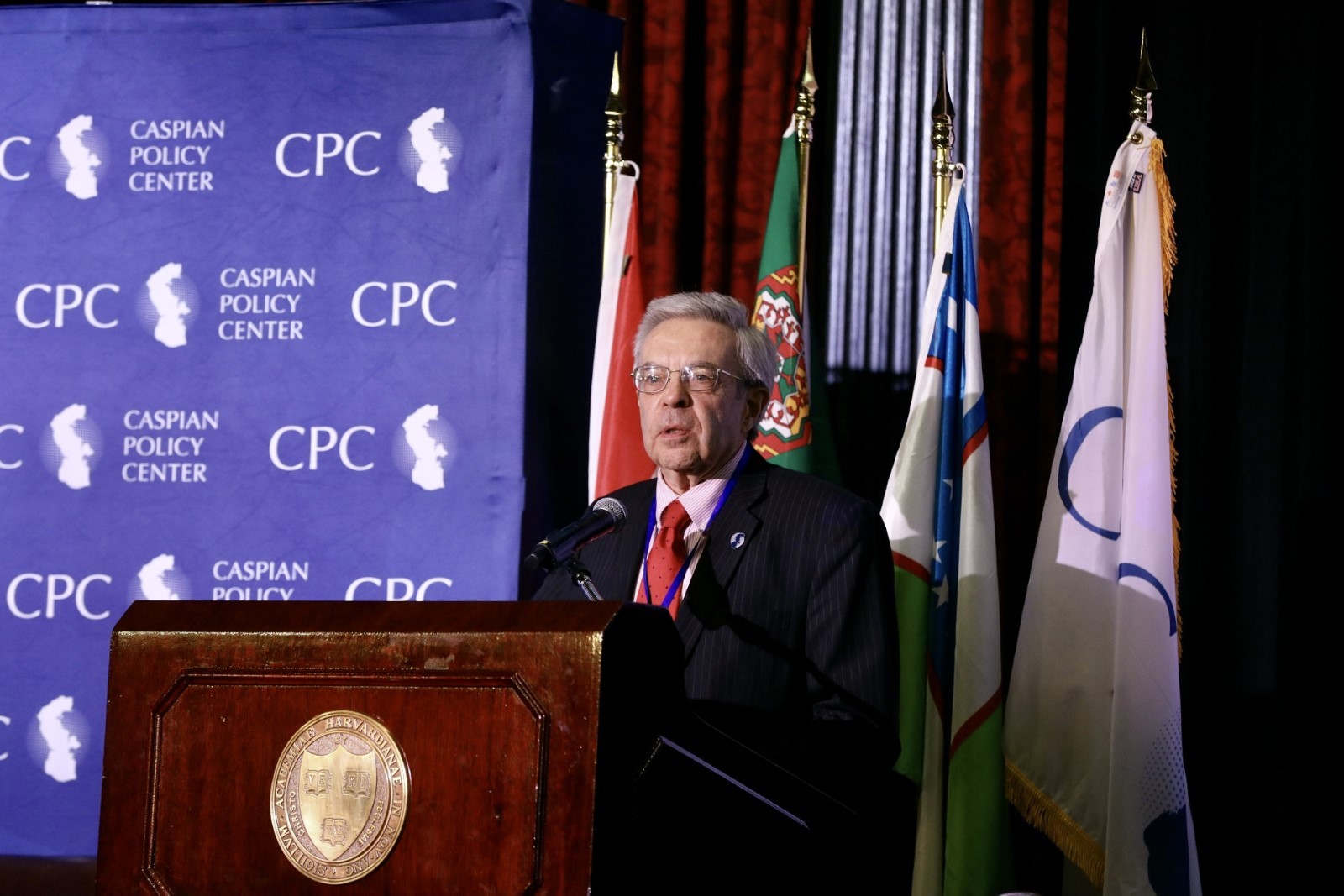 Ambassador (ret.) Richard E. Hoagland, Board Member of the Caspian Policy Center
Ambassador (ret.) Richard E. Hoagland, Board Member of the Caspian Policy Center
